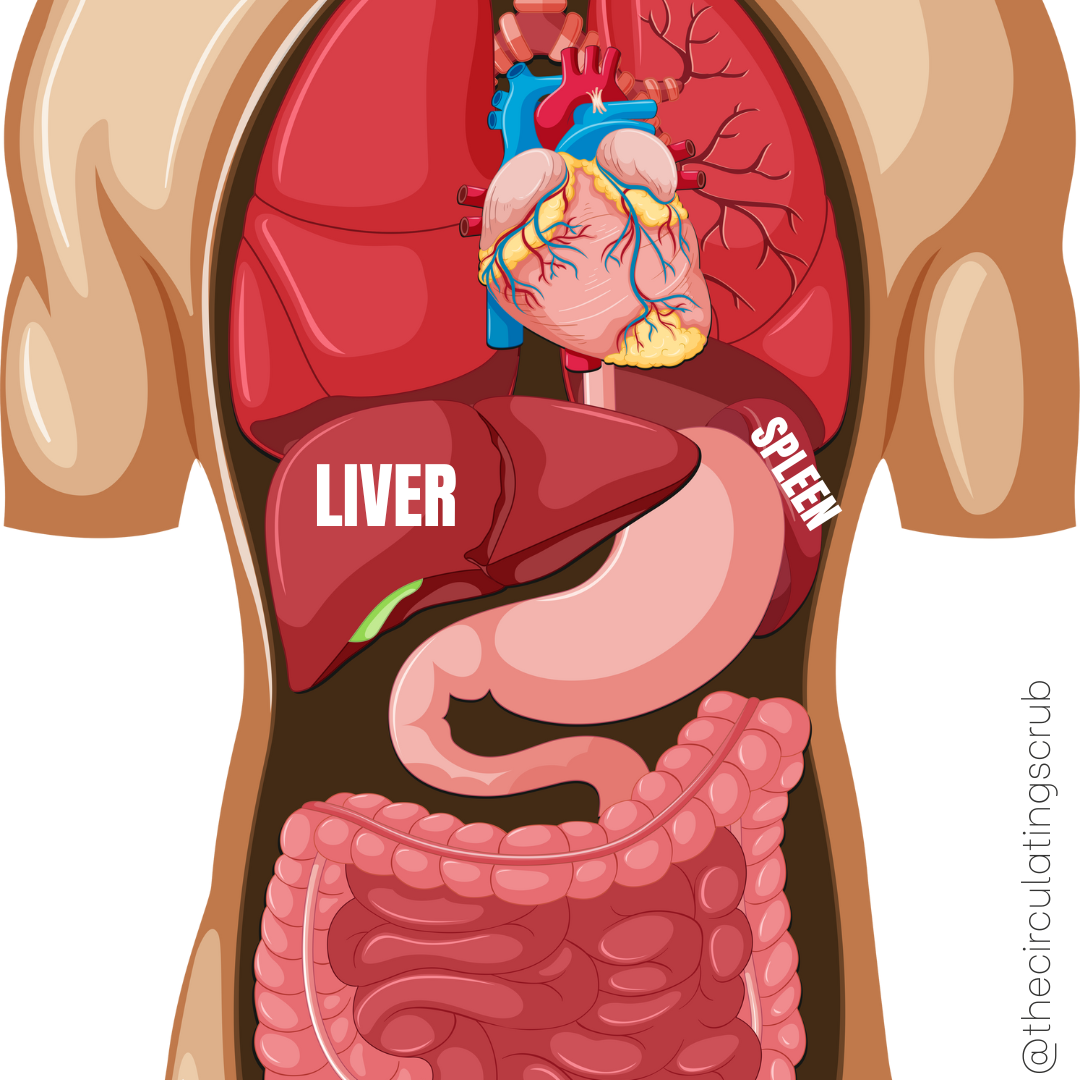Liver Mistaken for A Spleen Intraoperatively
If you haven’t already read about the Florida surgeon who removed a patient’s liver instead of his spleen which turned fatal, you should. You can read it here. How could this happen? I am struggling to grasp how a surgeon completely removed an unintended organ, especially when there would have been at minimum four other team members in the operating room. The RN, the surgical tech, the surgical assist, the CRNA, and then others, including an anesthesiologist who would have been in and out during the procedure. Reports claim it was a ‘hand assisted laparoscopic splenectomy’. If that’s the case, then everyone would have a front row seat to the entire procedure as it would have been displayed on at least 2 screens. I can’t imagine that no one on the team spoke up or questioned the anatomy. That leads me to another possible factor to this outcome.
Lack of certification requirement
Florida does not require certification for the surgical techs which they employ, and through a quick search, it doesn’t appear that the hospital where it happened does either. Was the surgical tech certified? Was the first assist certified? Did they have a formal education which would have included anatomy? I remember learning about each organ in significant detail in both A&P courses and in the surgical tech courses. I can’t imagine not questioning what was going on. In a laparoscopic procedure the surgeon usually stands on the opposite side of where the organ is and that’s often how I base my own set up (back table, mayo, etc). If I would have been prepared for the surgeon to come in and stand on the patient’s RIGHT side while he operated on an organ that is positioned in the patient’s LEFT side, and they came in and did the opposite, I would be very concerned and verifying the procedure. I would ask if the scans showed his spleen was displaced, etc. Below is an image of the ‘normal’ location of some of the organs, notice the spleen and the liver vary significantly in size, they are on opposite sides of the abdomen, and slo have other organs directly beside them (gallbladder is literally attached to the liver and the stomach and the spleen are very close neighbors).
Inexperience
Was the team in the room a “green” team? Were they fresh off of orientation? Was their orientation sufficient? Typically, when someone comes off of orientation, they are placed with another strong team member to help support them. For example, when I came off of orientation as a surgical tech, I was scheduled in rooms with experienced and competent assists and nurses. Then as I grew in my career, RNs would be placed in my room when they were fresh off of orientation. I feel this is a normal practice that most put into place to level things out and to have a safety net.
Culture
What was the culture like? Is it a place where if you speak up about patient safety but its ‘inconvenient’ you are brushed off? Are concerns taken seriously? Was there someone who knew or felt what was going on was wrong but was too afraid to speak up due to the anticipated response? What about anyone who came in for lunch breaks, relief, or any other reason? I cannot imagine NO ONE questioned this?
Patient’s Anatomy
I also question the decision to go straight for a splenectomy with no other interventions first. Did the patient have a history of anything spleen related? The only splenectomy cases that I’ve been a part of were trauma cases due to an MVA. Typically, a biopsy would be performed first in most cases as there are side effects from removing an entire organ. My biggest question, which I’m sure I’ll never get the answer to, is did the surgeon truly think he was removing the spleen? Due to this horrible mistake, a patient lost his life after being persuaded to have the procedure instead of returning home. Another question that crossed my mind, was this patient an organ donor? Were they able to donate any other organs because I’m sure the liver was ‘wasted’.
Had this patient had prior extensive surgery resulting in adhesions throughout the peritoneum making things more difficult to begin with? Did he still have his gallbladder?? That would have been a dead giveaway! Did he have some sort of an anomaly? What other factors could have played into this? The more I think about this, the more questions I have.

